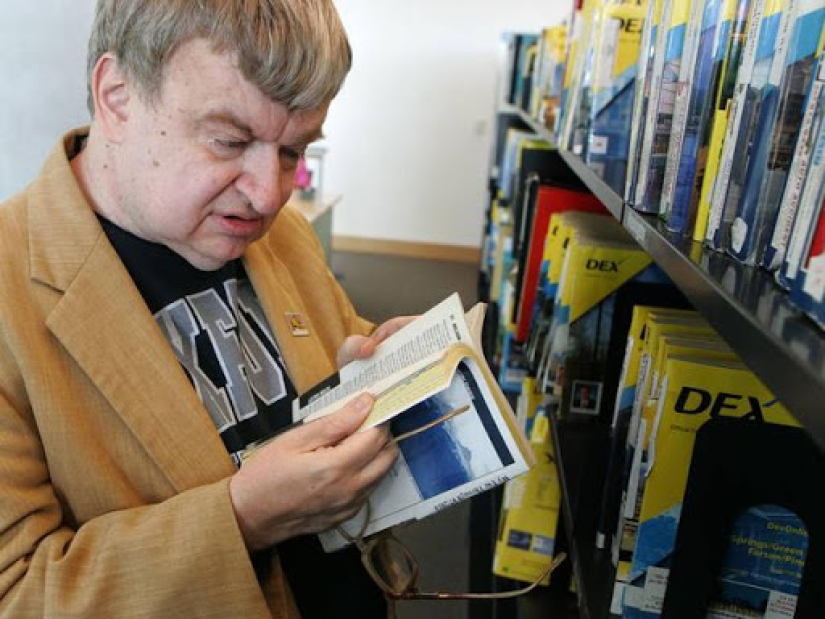Is it a gift from God or a disease? What is the Savant syndrome that makes people geniuses
Categories: Health and Medicine
By Pictolic https://pictolic.com/article/is-it-a-gift-from-god-or-a-disease-what-is-the-savant-syndrome-that-makes-people-geniuses.htmlThey can draw an exact copy of a picture from memory, instantly multiply five-digit numbers in their mind and memorize an entire book verbatim. These are not superheroes from science fiction films, but real people living among us. Such as they are-one in a million and science officially recognizes their existence. Unfortunately, the reason for their genius lies in a disease that scientists call Savant syndrome.

The word "savant" is of French origin — it is a derivative of "savoir", that is,"knowledgeable". There is no doubt that people with superpowers have always existed, but before the beginning of the Enlightenment, it was deadly dangerous to reveal their talents. In the Middle Ages, "savants" were not treated with ceremony and without much delay were sent to the bonfire or drowned in the river as sorcerers and witches.
Therefore, for the first time this phenomenon was studied only in the second half of the 18th century. In 1783, an article appeared in the German scientific journal "Gnothi Sauton" about a certain Jedidiah Buxton, who was able to instantly perform cumbersome calculations in his mind.
A more serious work was carried out by one of the fathers of American psychiatry, Benjamin Rush. Among the patients of the doctor, who lived at the turn of the 18th and 19th centuries, was Thomas Fuller — quite an ordinary person who did not have any abilities for the sciences or arts.

Kim Pik is the most famous savant of our time. He had abilities for mnemonics, counting and music
Even Rush could not give an accurate description of the phenomenon and limited himself to a detailed description of it. The first to investigate savants was the famous Dr. John Langdon Down, whom we know as the discoverer of the syndrome named after him. In 1887, Down gave a lecture about the so-called "stupid scientists", whom he had the good fortune to encounter several times during his 30 years of work at Earlswood Hospital.
The scientist told about people who have incredible talents in drawing, music, mathematics or a phenomenal memory. At the same time, the general level of intelligence of these people could be described as low and they were practically helpless outside the sphere of their talent. John Down was the first to accurately describe the clinical picture of Savant's syndrome, which was later supplemented by many medical luminaries.
People with savant syndrome are characterized by a phenomenal memory and the presence of a narrow specialized talent or a special skill. At the same time, such people, as a rule, have deviations of the autistic spectrum or disorders in the work of the central nervous system. The ratio of savants with these problems is 1 to 1.

Artist Stephen Wiltscher reproduces panoramas of large cities from memory
The syndrome can be either congenital or acquired. Sometimes a person begins to show unexpected talent after a head injury or serious stress. So far, scientists cannot explain this phenomenon, but they assume that the " release "of some gift is a reaction of the nervous system to a strong shock, or even compensation" assigned " when some functions are lost.
At the same time, Rimland found that musical talent is the most common among savants. More often, a person has one talent — cases when several are present are very rare. There are also exceptional abilities, for example, a rare, inhuman gift of smell.

Daniel Tammet knows 10 languages and performs the most complex calculations in his mind at lightning speed
Not all the talents of people with this syndrome are associated with creativity. There are also examples of how savants achieved phenomenal success in neurophysiology, statistics and navigation. There are about 100 scientists from different countries with this disease. By the way, savant's syndrome can not be an obstacle to doing some work — it is not considered a mental deviation.
Despite the fact that the syndrome was not included in the DSM-5 handbook and it was not recognized as a personality disorder, the question of the treatment of savants was periodically raised. In 1930, the problem was taken up closely — at an international conference, psychiatrists from all over the world decided whether to treat symptoms or develop talents. After numerous reports and debates, it was decided to definitely focus on talents. The defects of the central nervous system became less obvious over time, and sometimes disappeared altogether, but the abilities remained.

Today, scientists recommend that parents pay increased attention to the abilities of savant children. Special schools are being created for them, but if parents believe that the talent obtained with the syndrome will interfere with the child, no one forbids treating him. Cases of "healing" are well known. The most famous case is the case of a young artist Nadia, who was sent to study at an ordinary school and over time her gift began to weaken and disappeared.
Keywords: Autism | Mystery | Mathematics | Psychology | Syndrome | Talents
Post News ArticleRecent articles

It's high time to admit that this whole hipster idea has gone too far. The concept has become so popular that even restaurants have ...

There is a perception that people only use 10% of their brain potential. But the heroes of our review, apparently, found a way to ...
Related articles

Many are tormented by an unusual question: why are there so many grandmothers with purple or lilac hair around? Why do they paint ...

In 1970 in the valley Isdale in Norway passers-by found the burnt body of a woman. What at first looked like an accident, start to ...

There are items, the form of which enters into a stupor. Try to guess what this thing is! Tip: the place — Uzbekistan, ...

New Year's is a time to surprise and delight loved ones not only with gifts but also with a unique presentation of the holiday ...